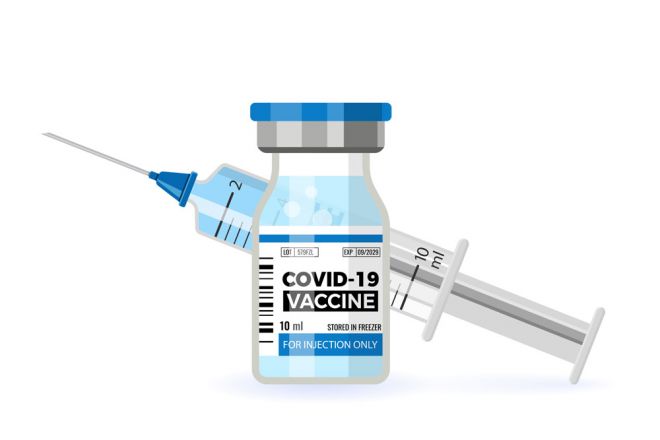Community Immunity: COVID-19 Vaccines in Cuba
Published on December, 47 2021
By Leni Villagomez Reeves
Co-chair, Cuba and the Bolivarian Alliance Issue Committee
December 2021
Cuba is vaccinating with Cuban vaccines - and it’s working.
Cuba is vaccinating faster than any other country in the world, in terms of percentage population per day. Currently, almost 100% of vaccine-eligible people have at least one dose, 90% have two doses, and 71% are fully vaccinated with three doses. This is particularly impressive because Cuba is also vaccinating the pediatric population from ages 2-18.
How can Cuba vaccinate the whole population when Haiti, in the nearby Caribbean, has a fully vaccinated rate of 0.2%?
Cuba is the only small country, the only third world country, and the only Latin American country to develop any vaccine. Indeed, Cuba has developed five vaccines, three of which have been approved for use. From the beginning of this effort, the plan was to employ the vaccine for all of the island’s residents and make these vaccines available globally.
Vaccine Internationalism
The Cuban people have decided to continue their medical solidarity, already strongly expressed in medical brigades and the Latin American School of Medicine, by extending access to the Cuban vaccines to countries that cannot afford the vaccines developed by the world’s great powers.
An Advanced Public Biotechnology Sector
Cuba can do this because it has a robust, innovative advanced biotechnology sector, which they have developed despite six decades of US blockade. Cuba’s biotech sector is unique. This biopharma sector is entirely owned and financed by the Cuban people, through the Cuban state, not by speculative capital or for-profit private corporations, and developed by planning, not market forces. It maintains the national health system as its first priority and orientations toward Global South-South cooperation and international solidarity with other developing countries. It responds to the needs of the Cuban people and not to profit motives, has a closed cycle strategy of all processes from basic research to production to post-use follow-up, and is based on collaboration, not on competition.
This model has worked. Cuban scientists have developed innovative medications and vaccines, including the world’s first meningococcus vaccine, a treatment for a type of lung cancer, medication to treat diabetic foot ulcers that dramatically reduce the need for amputation, and medicines that have been used to treat COVID-19 with good results.
They have produced five anti-SARS-CoV-2 vaccines, and Soberana 02 and Abdala have completed clinical trials and been approved by the Cuban regulatory agency. They are awaiting World Health Organization (WHO) approval. Also essential for this effort is Cuba’s highly functioning, universally accessible health system.
What about anti-COVID vaccines for children?
Again, Cuba’s biotechnology sector has been producing vaccines for children for a long time. The Cuban vaccines are not mRNA vaccines; they are sub-unit vaccines, built on the same platforms as the pre-existing vaccines, conjugating the spike protein of the SARS-CoV-2 virus with inactivated tetanus toxin, in the case of Soberana 02, while Abdala builds on the same platform as Cuba’s hepatitis B vaccines, in use now for over 25 years. As the vaccines against SARS-CoV-2 were developed, the use in the pediatric population was taken into account; children were not an after-thought.
What’s the community attitude toward vaccination in Cuba?
A personal note: Years ago, long before the pandemic, I toured the pediatric hospital in Marianao with Dr. Lupe Guevara, a pediatrician, and specialist in traditional and alternative medicine. I asked her about vaccine hesitancy in Cuba, figuring that she would know if anyone would. She looked at me, very puzzled, and said, “Naturally, parents want what’s best for their children.” Indeed they do, and what is best is more obvious when it is not confused by the profit motives of big pharma and the health care industry.
It’s also clearer when media promotes popular education rather than ignorance and anti-science. Cuba has a literate and highly educated population that hasn’t had any reason to be afraid. The country has as a reliable primary care system, universally accessible and free of charge, and has achieved childhood vaccination rates of over 99%. All Cubans are vaccine-protected against 13 diseases. Eight of those vaccines are made in Cuba, so there’s a long history of vaccine production and use and vaccine safety.
(It’s a little-known fact that Cuba was the first country in the world to eliminate polio. In 1960, Albert Sabin published his results using the oral vaccine, saying it could be used to eliminate polio from the world. The only country that took him up on it then was Cuba. In 1962, Cuba immunized over 80% of all children in 2 weeklong periods four weeks apart. In 1963, there was only one case of polio in Cuba, and in 1964 and after, there were none.)
Rates of infection and death have fallen dramatically.
For 2020, Cuba maintained very low numbers of COVID infections through public health measures alone. After opening the borders in November, even with attempted screening and isolation measures, imported infections spread widely into the community. At its height in August, the virus was infecting over 9,000 Cubans per day. Now, the rate is less than 3% of that; roughly 150 people per day in a population of about 11 million, and falling rapidly. When the numbers were bad– bad by Cuban standards, that is: even now, US COVID deaths per million people are well over three times higher than in Cuba – the Cuban Ministry of Health published them daily in the press, and they still do now that they are much better.



